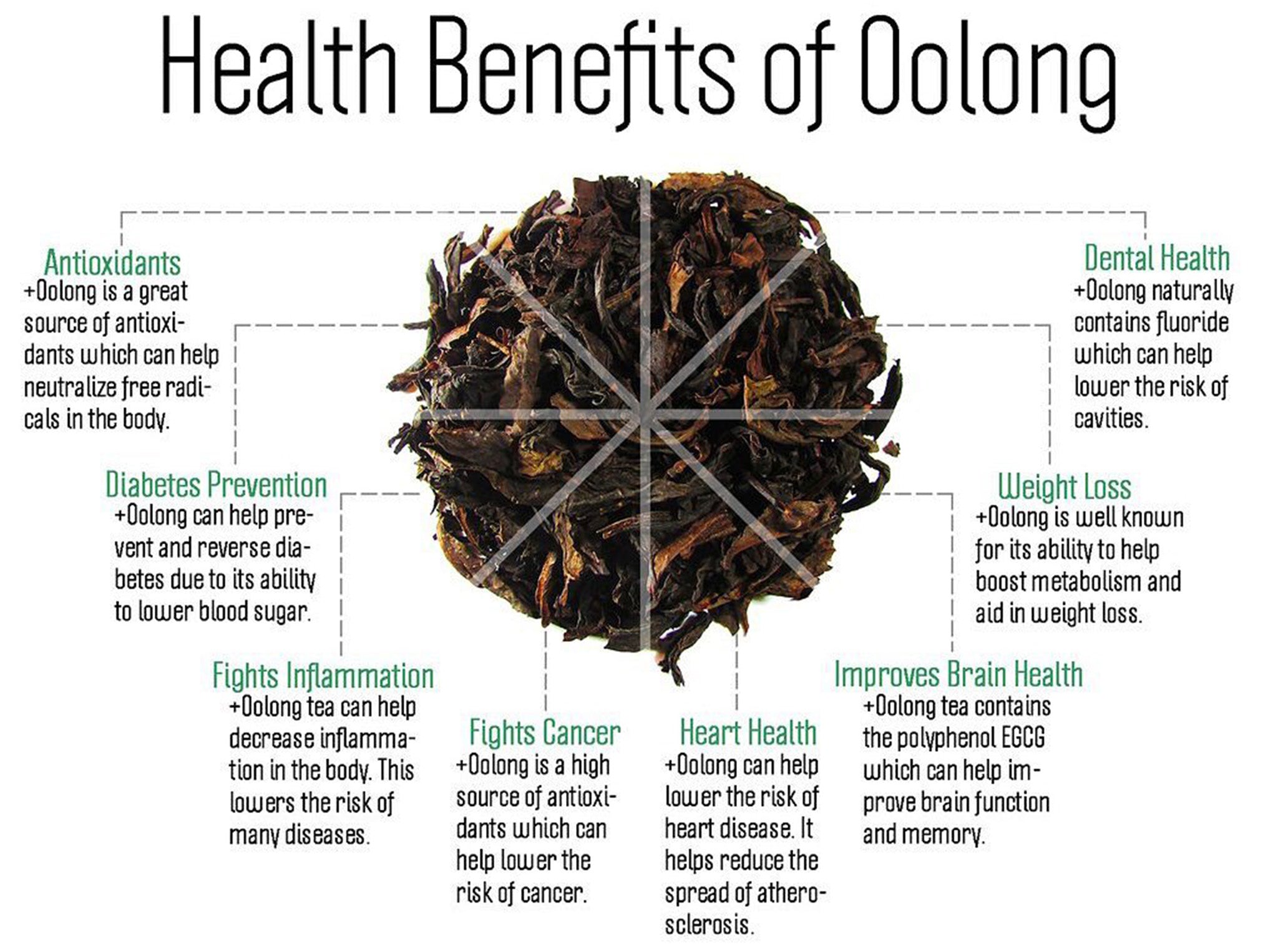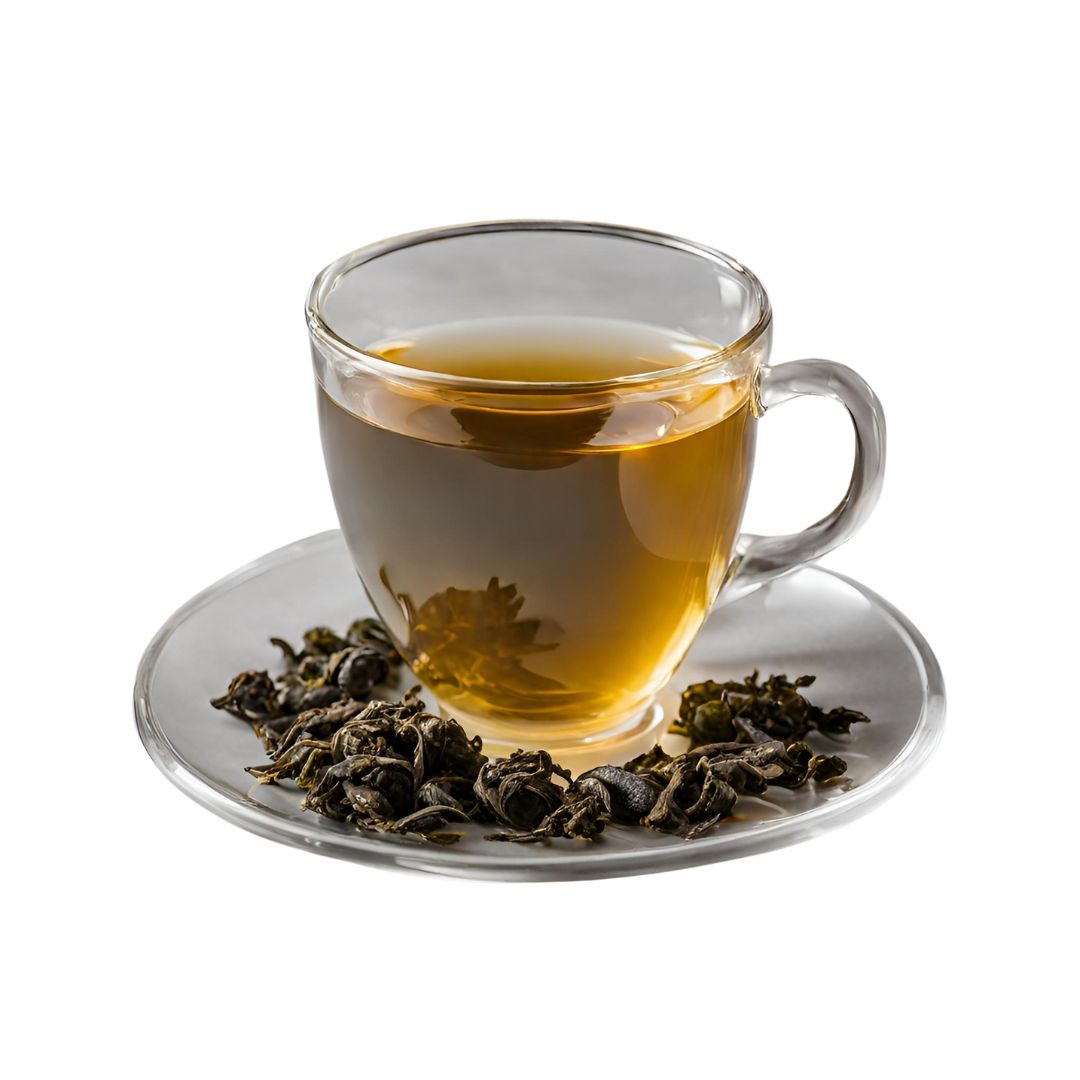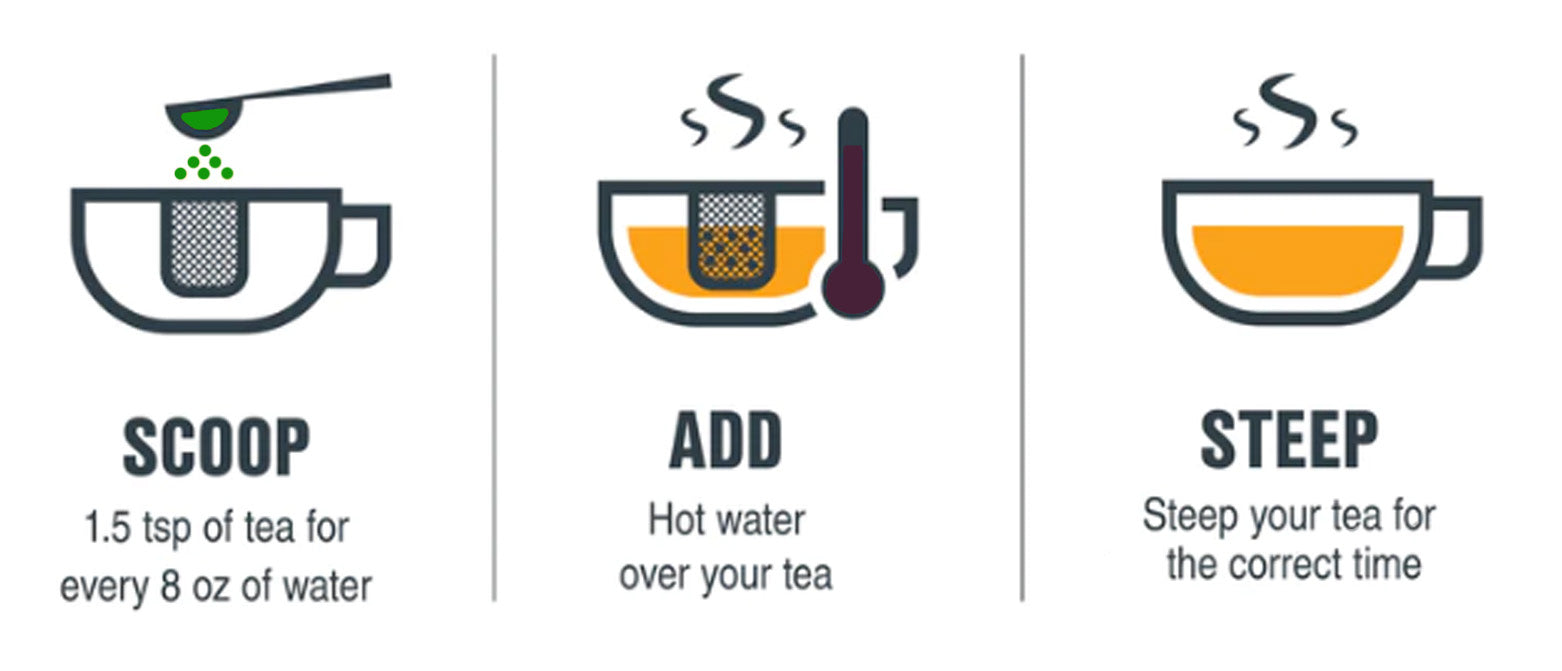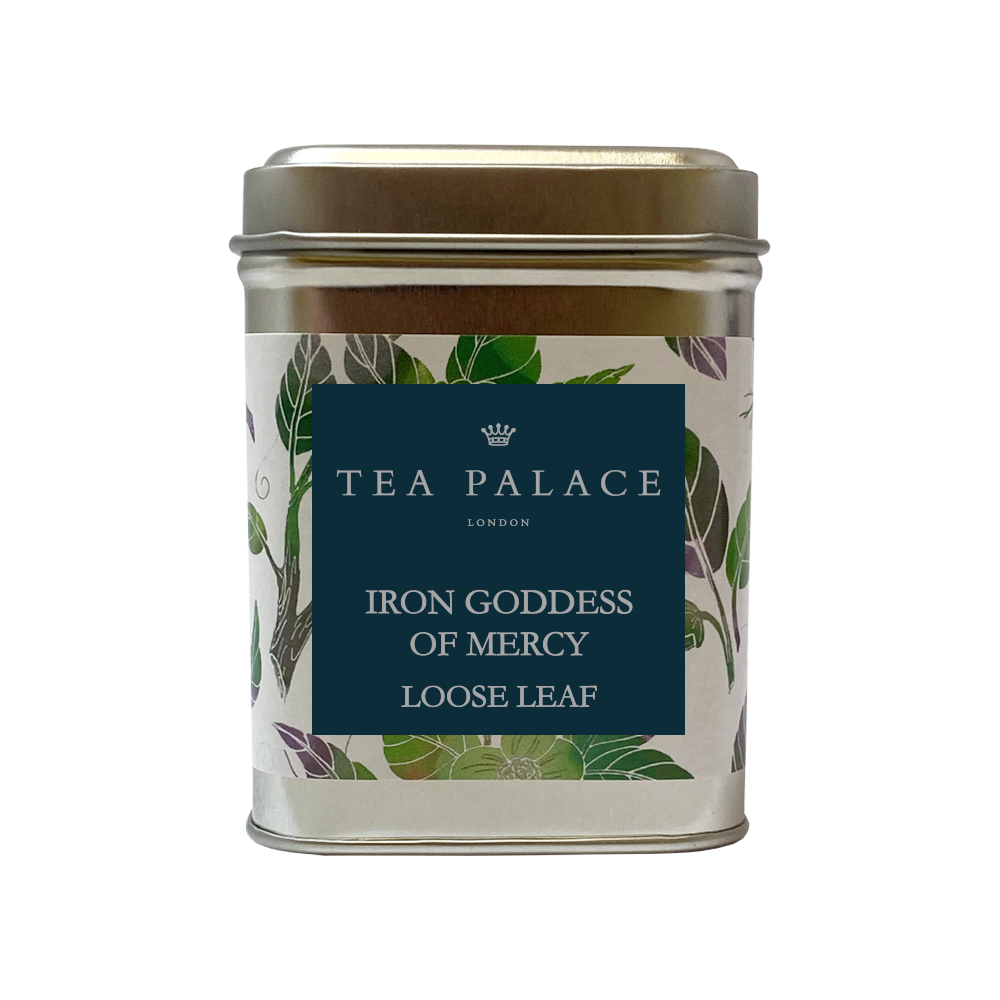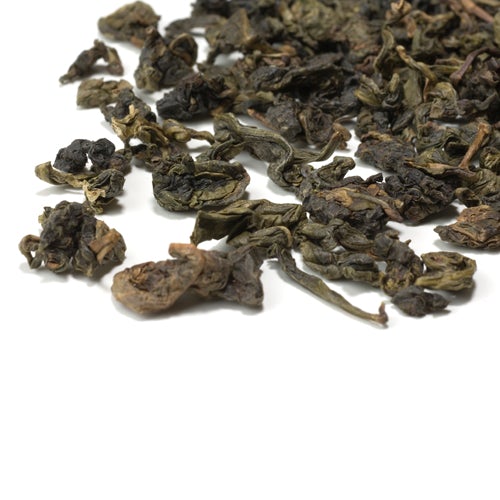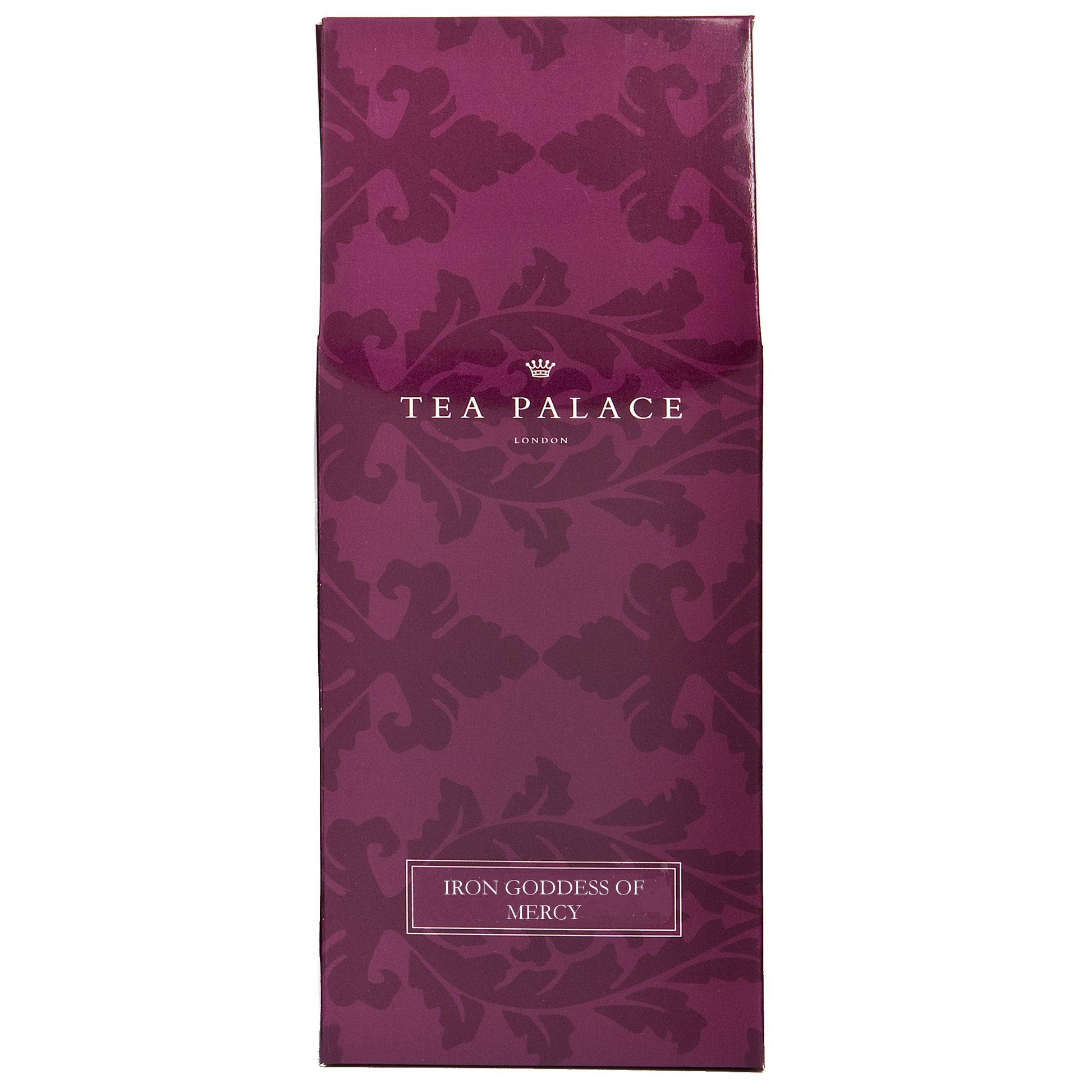Iron Goddess of Mercy
Iron Goddess of Mercy
Couldn't load pickup availability
Discover the storied elegance of one of China’s most renowned oolong teas, celebrated for its captivating flavour and the legend that gives it its name. This exceptional tea offers a harmonious blend of aromatic, nutty, and subtly sweet notes, originating from the fertile soil of Fujian, China.
Iron Goddess, also known as Ti Kuan Yin, is one of the most famous and revered oolong teas in China, with a rich history and a name that carries profound meaning. The tea is named after the Buddhist goddess Guanyin, also known as Kuan Yin, revered for her compassion and perceived as the one who listens to the suffering of the world. Her story, interwoven with the origins of this tea, is a testament to hope, devotion, and resilience.
Legend has it that a humble farmer, living near an ancient stone temple dedicated to Guanyin, struggled with drought, disease, and failed harvests. Devoted to the goddess, he prayed for relief and one day, as he tended to the temple, a voice from the statue whispered to him, guiding him to a sapling just outside the temple. The farmer nurtured the plant, and as it grew into a thriving tea shrub, its leaves produced an invigorating and delightful beverage. This tea soon became sought after, and the village flourished, thanks to the generosity of the goddess and the nourishing power of the plant.
Crafted from tender leaves of this legendary plant, Iron Goddess embodies the essence of the land it’s grown in, capturing the heart of Fujian’s fertile soil with each infusion. The leaves are skilfully rolled into tight balls and partially oxidised, resulting in a perfect balance between the fresh notes of green tea and the richness of black tea. The flavour profile is a beautiful combination of roasted nuts, subtle sweetness, and hints of stone fruit, making every sip as captivating as the tea’s story.
Iron Goddess is a truly luxurious experience that combines the best of nature with the allure of myth. Whether enjoyed as a morning energiser or an afternoon indulgence, this tea offers an enchanting and revitalising journey in every cup.

Brewing Tips
Brewing Tips
Place one teaspoon per cup into an infuser, filter or teapot. Switch the kettle off, before it boils, when you hear the water rumbling. Add the hot, but not boiling, water and infuse for 3-4 minutes. Serve immediately or remove leaves to prevent spoiling
Ingredients
Ingredients
Oolong Tea.
Allergens Note: All products are packed in an environment that contains nuts and other allergens.
Our Sizes Explained
Caddies
Caddies

Caddies
Our bespoke white and lilac caddy is the perfect way to keep your infusion fresh.
Contains enough for approximately 40-60 cups of happiness.
Refill Pouch
Refill Pouch

The refill carton, available in Standard and Large, is a perfect, environmentally friendly way to replenish your Tea Palace Caddies.
Contains enough for approximately 40 cups (Standard) or 60 cups (Large) of one of our infusions.
Sample Caddy
Sample Caddy

Our small sample size caddy weighs 45g and is the perfect way to try a new infusion or multiple different blends.
It contains enough for approximately 10 cups of goodness.
Share
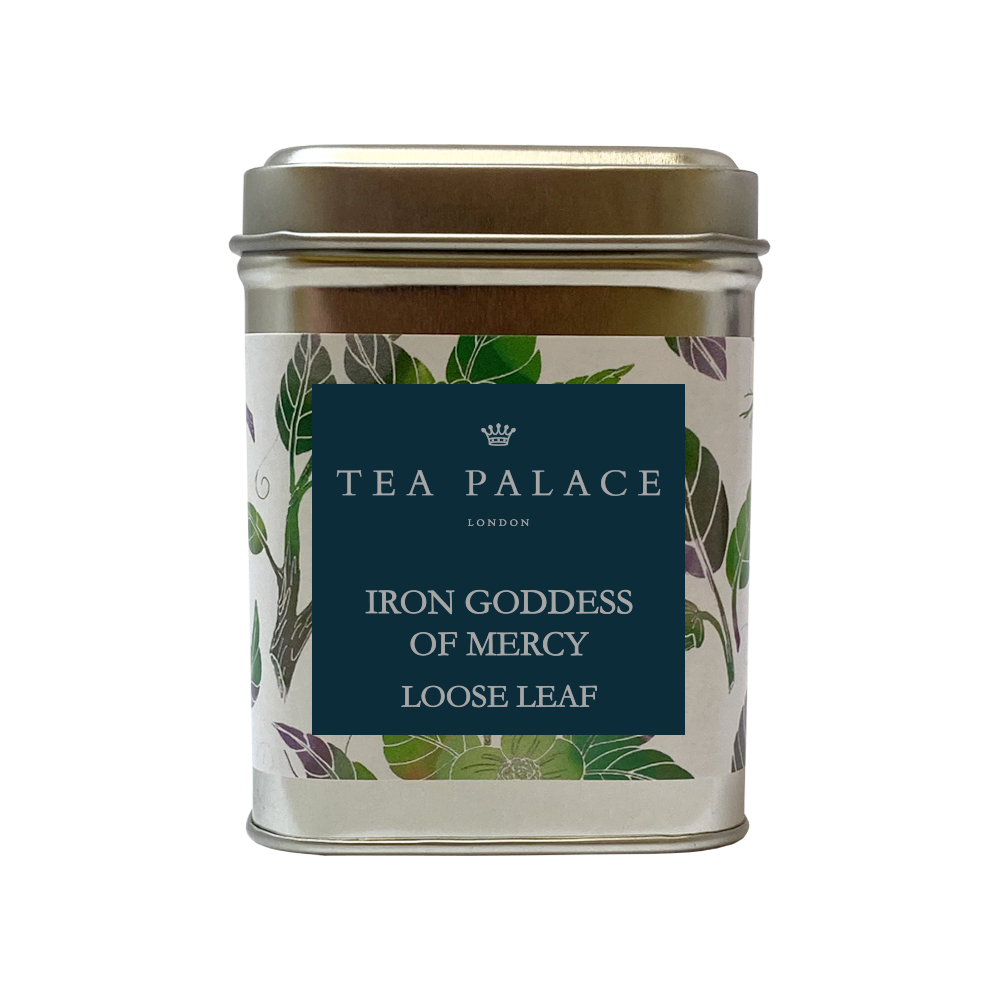
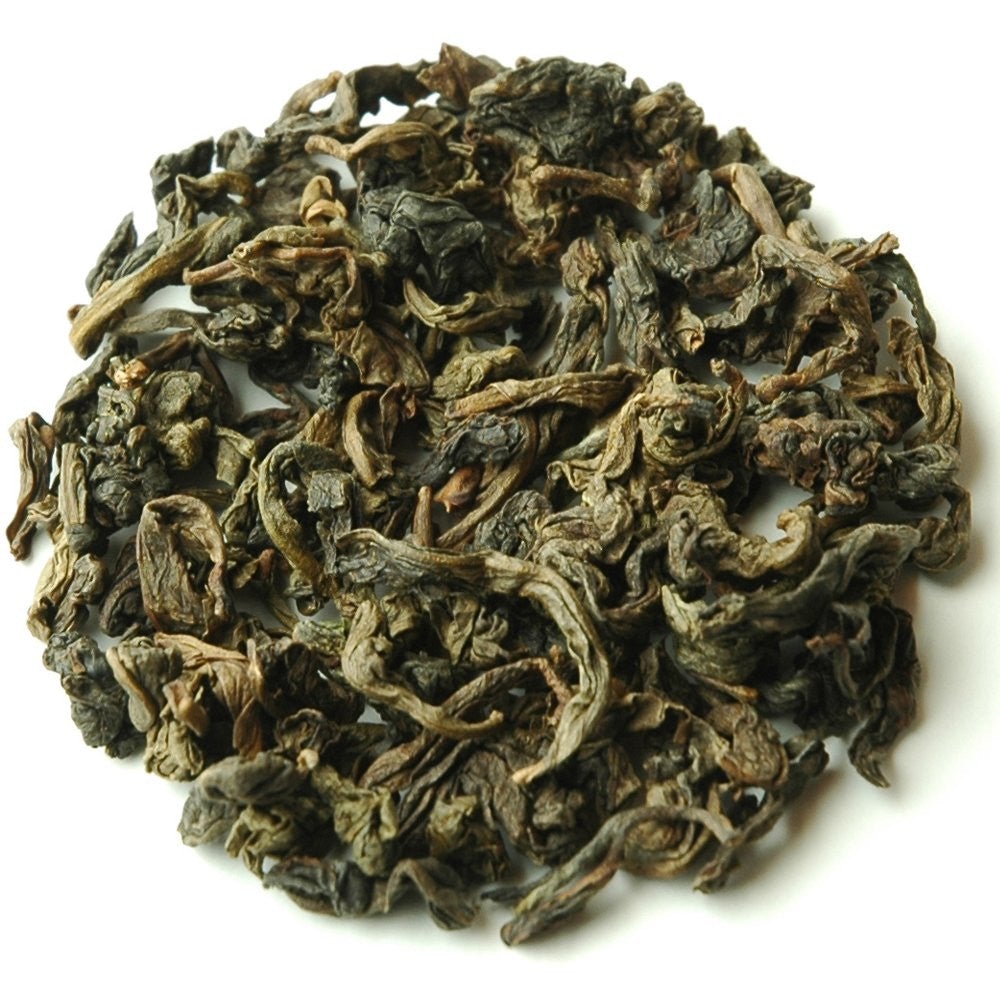
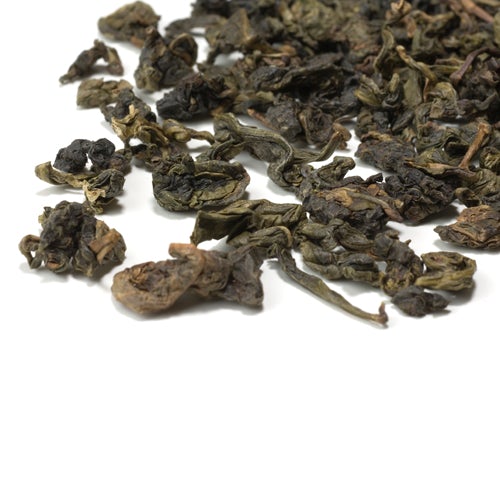
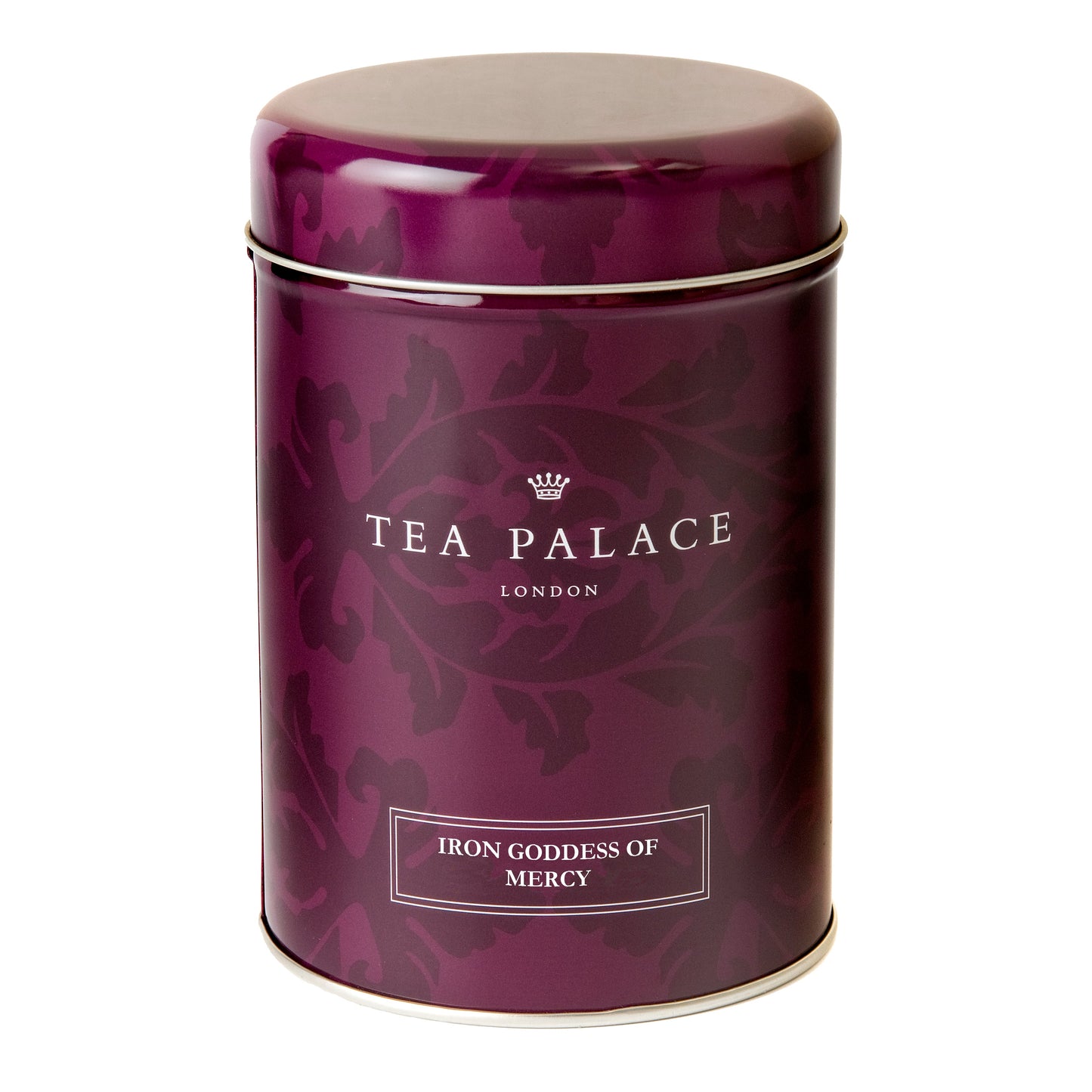
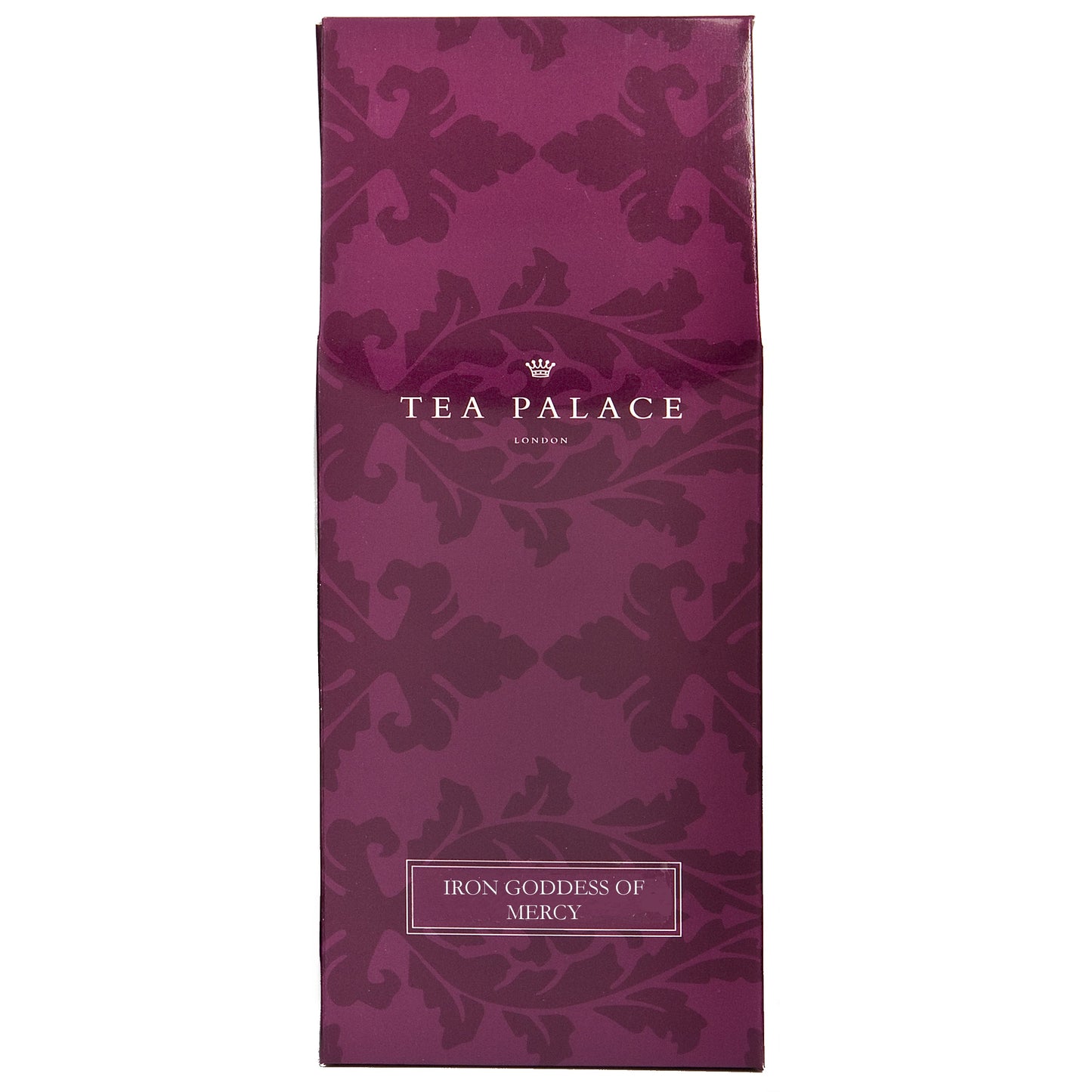
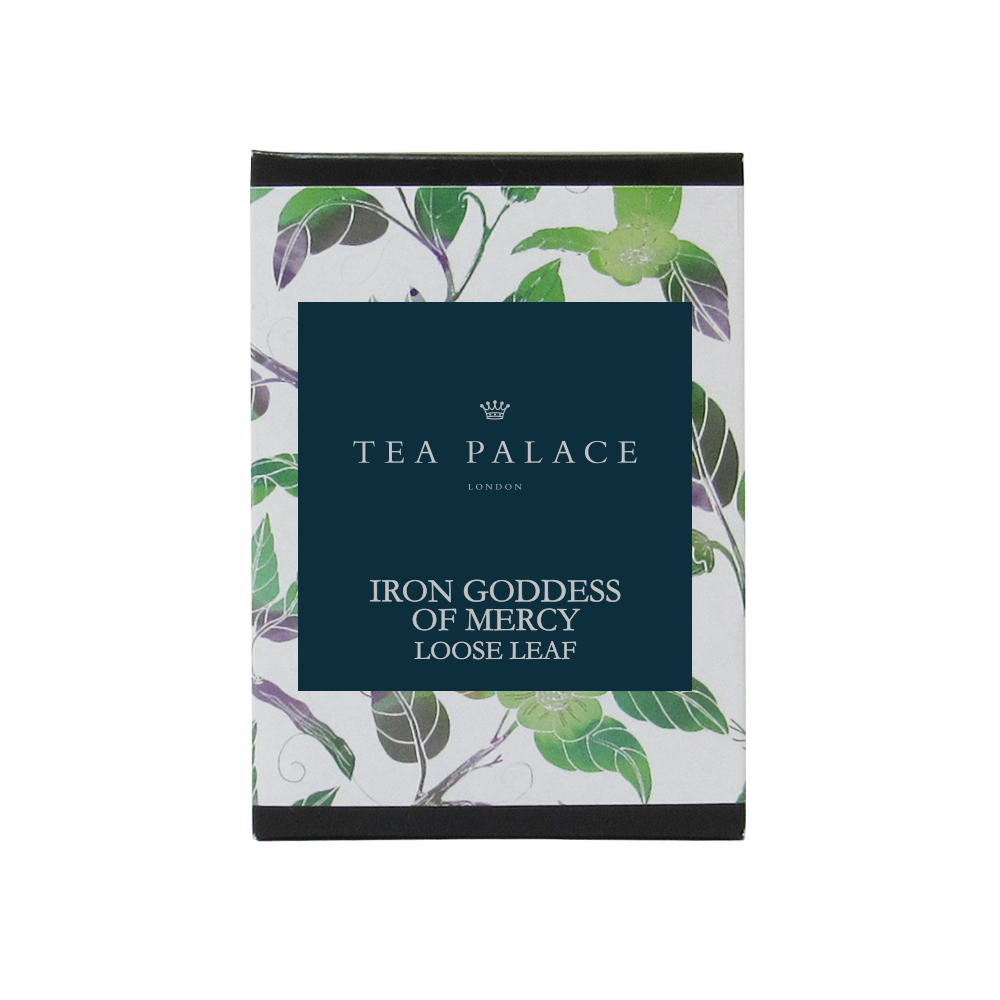
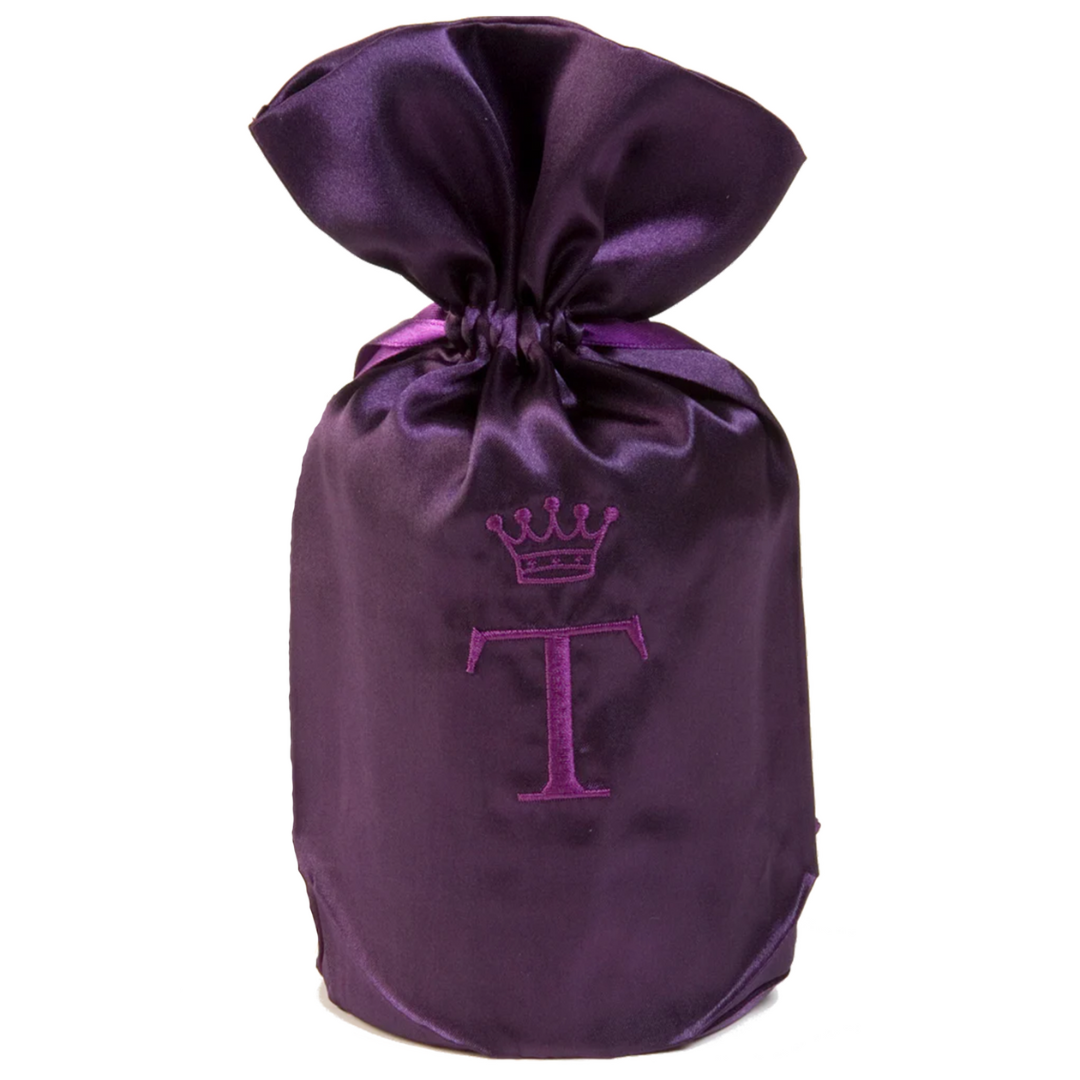
An exquisite Oolong tea.
A very nice Oolong tea.
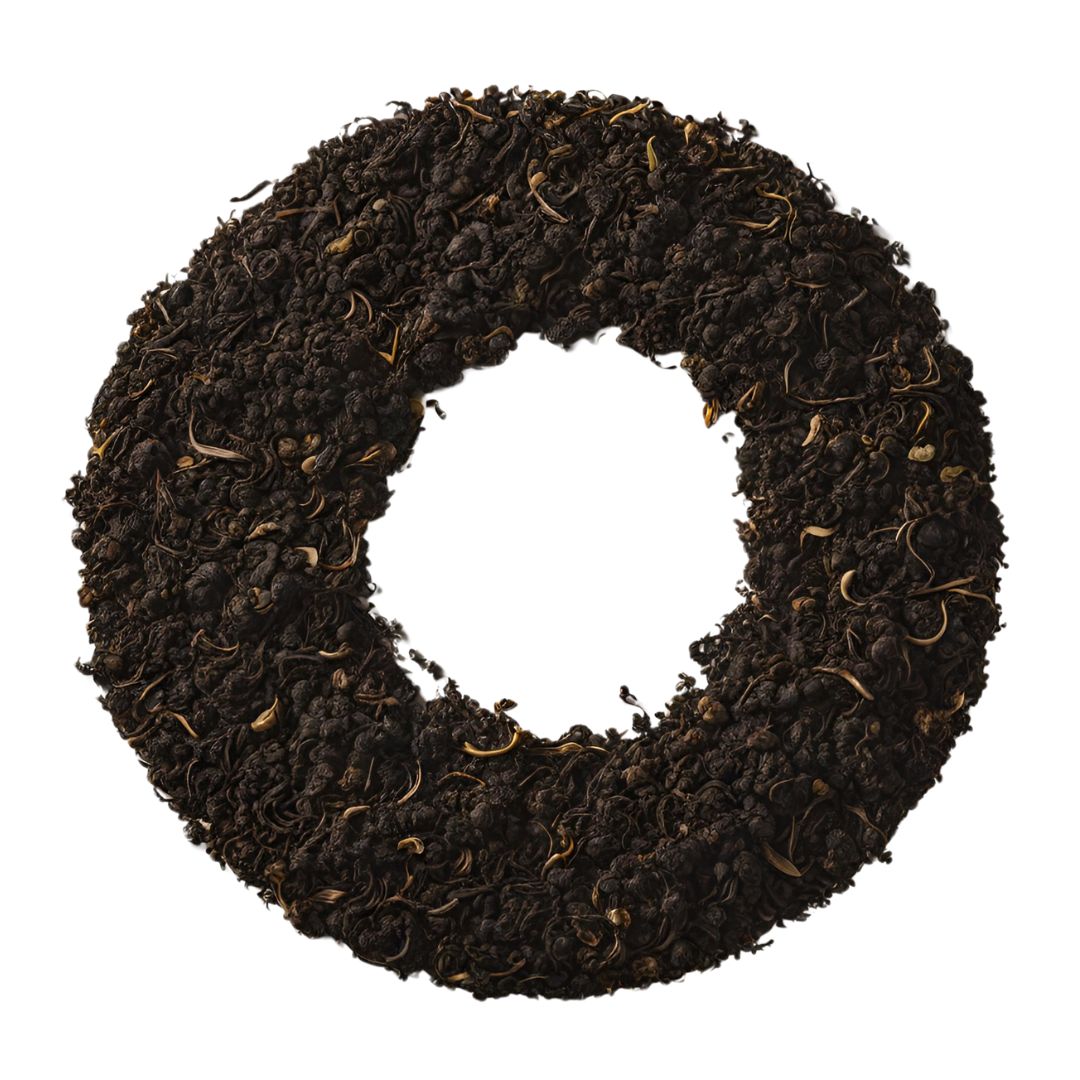
About Iron Goddess of Mercy
The "Iron Goddess of Mercy," known as Tie Guan Yin or Ti Kuan Yin, is a renowned oolong tea that originated from the Fujian province in China. This tea is highly prized for its unique flavour profile, which combines floral and creamy notes with a lingering sweetness.
Tie Guan Yin is traditionally grown in the Anxi County of Fujian province, China. The tea has gained popularity both within China and internationally for its distinctive taste.
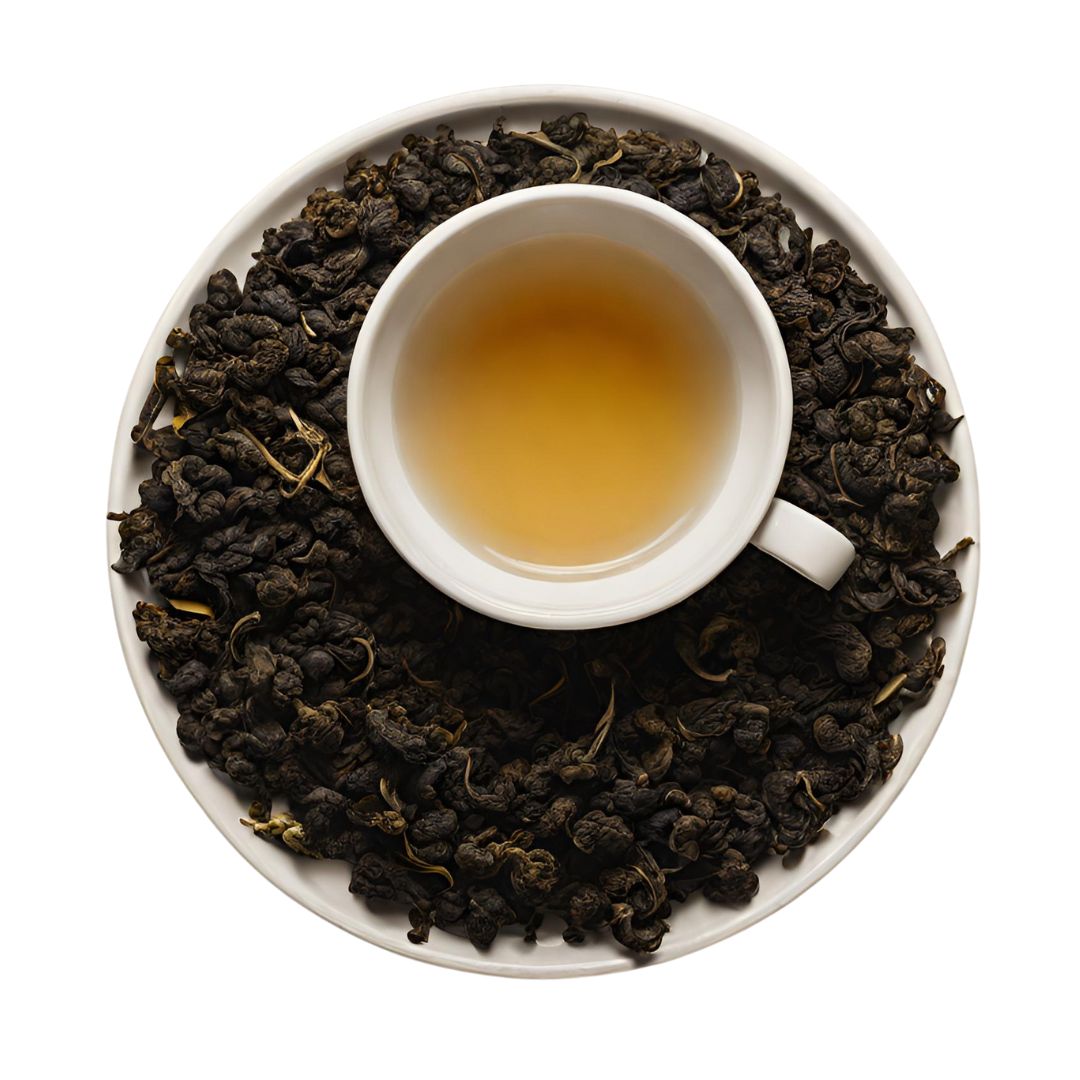
Tie Guan Yin is a partially oxidized oolong tea, often falling between green and black tea in terms of oxidation levels. The processing involves withering, tossing, oxidation, fixation, rolling, and drying. The degree of oxidation can vary, leading to different styles of Tie Guan Yin, ranging from lightly oxidized (Qing Xiang) to heavily oxidized (Nong Xiang).
The leaves of Tie Guan Yin are tightly rolled into small, dense balls or pellets. The colour can range from bright green to deep brown, depending on the oxidation level. The leaves often unfurl during steeping.
Tie Guan Yin is celebrated for its complex flavor profile. It typically offers a balance of floral and orchid notes, a creamy or buttery texture, and a lingering sweetness. The unique mineral-rich soil of the Anxi region contributes to the tea's distinctive "yan yun" or rock rhyme.
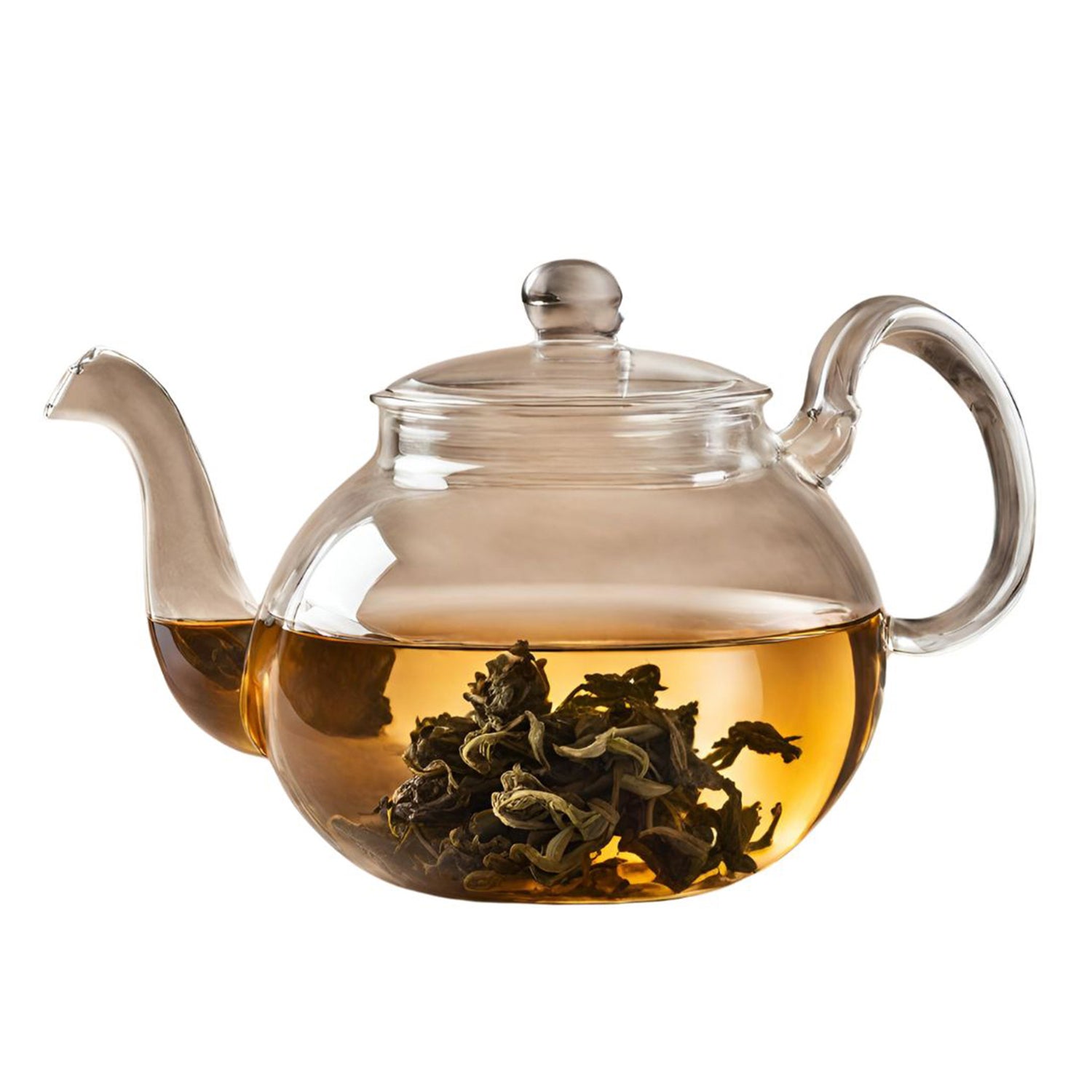
The aroma of Tie Guan Yin is often floral, with hints of orchid and a subtle roasted quality. The fragrance is an integral part of the overall tea-drinking experience.
The brewed liquor of Tie Guan Yin can range from pale yellow to golden, depending on factors such as oxidation level and brewing parameters.
Oolong teas, including Tie Guan Yin, contain moderate levels of caffeine. The caffeine content is higher than green tea but lower than black tea.
Tie Guan Yin can be enjoyed through multiple infusions, with each steeping revealing different nuances of flavor. It is commonly brewed using traditional gongfu cha methods or in a teapot.
Tie Guan Yin is deeply rooted in Chinese tea culture and has a rich history. The tea is associated with the Buddhist legend of Guanyin, the Goddess of Mercy, which adds to its cultural significance.
